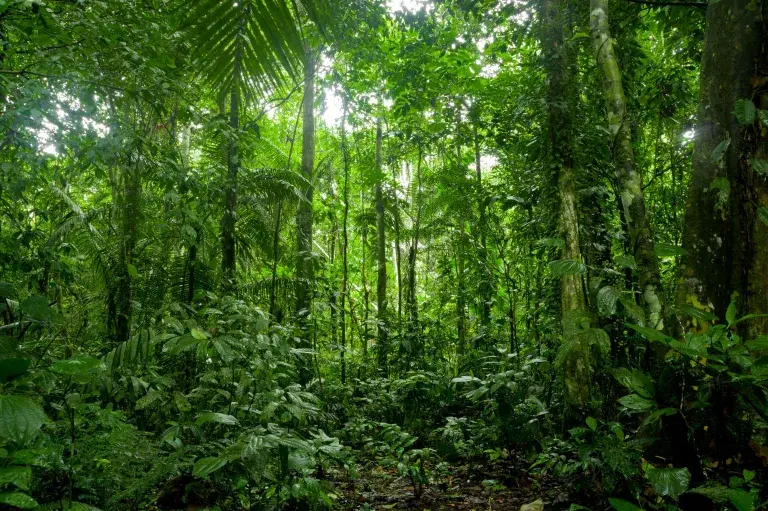Sustainability systems are poised to support company reporting on the EU Deforestation Regulation
If your company touches deforestation-risk commodities in Europe, then the EU Deforestation Regulation (EUDR) should be top of your mind. This regulation will be applicable at the end of next year and requires that companies do their due diligence to ensure that products sold in or from Europe do not include commodities that resulted from illegal deforestation or forest degradation.
It is a lofty and welcome goal, but the devil is in the detail and there are a lot of details that still need to be worked out!
Companies must report on potential sustainability risks
The EUDR is part of a broader suite of national and regional due diligence related regulations and disclosure requirements that signal a fundamental shift in expectations around company’s responsibility and sustainability. Governments are saying that it is no longer good enough that companies take voluntary responsibility for their behaviour and practices. It has become necessary to regulate companies to report on their potential sustainability risks in their direct operations and overall in their supply chains, and on how they are managing (from identifying to monitoring and even remediating) those risks.
Sustainability systems well placed to support company reporting
The rise of sustainability-focused regulations could seem problematic for sustainability systems, given their role has traditionally been about filling the regulatory gap and providing a voluntary tool for companies to distinguish themselves and their good sourcing practices.
In fact, it is quite the opposite. There is an important opportunity for sustainability systems to expand their remit and scope. ISEAL members, with their existing standards, auditing, risk assessment, and traceability capabilities are well-placed to support companies with the information they need to communicate the bona fides of their certified products.
However, sustainability systems will need to implement some significant changes and adaptations to their systems. And many of them are already well along on that journey, with ISEAL members committed to making the changes necessary for their systems to be used in support of companies reporting on their due diligence.
ISEAL Community Members supported to capitalise on synergies
One of the benefits of ISEAL Community Members is that they are moving along similar paths as they adapt and improve their systems. ISEAL has been fortunate enough to secure funding from the Walmart Foundation to create spaces for member peer learning and technical support that will take advantage of these synergies to strengthen members’ ability to deliver value for companies reporting against the EUDR.
This two-year programme of work has three primary workstreams that address three of those devilish details in the EUDR. First, the EUDR requires that products are traced back to the plot of land they were grown or harvested on. This means that point or polygon geospatial data needs to be collected from all production plots. That may not seem challenging until we consider smallholder production systems like palm oil or cocoa where there are millions of smallholders working individual plots of land. We will support ISEAL members generally to improve their geospatial mapping capabilities and specifically to look at feasible approaches for mapping down to the individual plot level.
Second, and possibly most problematic, the EUDR requires that the deforestation status is known for all production sites entering a chain of custody. The EUDR defaults to segregation traceability models because of the threat that mass balance models incorporate mixing of sources from unknown origins. The challenge is that for bulk commodities like palm oil or soy, the supply chains are so convoluted that mass balance or book and claim traceability models are often the only viable solution. ISEAL will support sustainability systems to explore alternatives to mass balance that may be acceptable to the EU while offering a viable pathway, particularly for smallholders in bulk commodity supply chains.
The third and final workstream looks at how sustainability systems can improve the quality and effectiveness of their social auditing. The EUDR focuses primarily on illegal deforestation and forest degradation, but it also requires that sourcing areas comply with applicable national and subnational environmental and social regulations. Sustainability systems are again well-placed because most have compliance with national legislation embedded in their standards and assurance. Our third workstream recognises that while this requirement is addressed, there is always room for improvement in auditing practices, particularly for some of the trickier social issues. We will provide technical support to sustainability systems to improve auditor capacity for social auditing, particularly for complex issues like free, prior, and informed consent (FPIC).
Sustainability systems can see the opportunity that new due diligence regulations and sustainability reporting and disclosure requirements bring. Sustainability systems are well positioned to be leading tools that companies can use to support their due diligence reporting. These systems are making the changes necessary to deliver the information and structures that companies need. And ISEAL is there to support them on that journey and to ensure that credible sustainability systems are recognised for the central roles they can play in this new regulatory environment.
